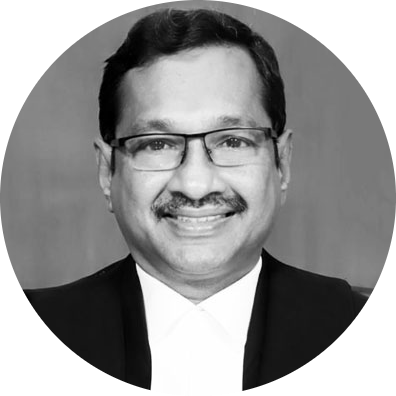M.M. Sundresh

M.M. Sundresh
Sitting Judge of the Supreme Court of India
Assumed Office31st Aug, 2021
Retires On21st Jul, 2027
Previously
Permanent Judge of the Madras High Court29 March 2011-30 August 2021
Additional Judge of Madras High Court31 March 2009-29 March 2011
Government Counsel1991-1996
Enrollment1985
Profile
Early life and education
Justice M.M. Sundresh was born on 21 July 1962 in Erode, a small city in Tamil Nadu. His father, V. K. Muthusamy, was a Senior Advocate at the Madras High Court.
Justice Sundresh completed his schooling and pre-university education in Erode, before moving to Chennai for his college studies. In Chennai, he enrolled in the B.A. programme at Loyola College. On completion of his B.A. degree, he obtained a law degree from Madras Law College.
Career as an advocate
Justice Sundresh enrolled as an advocate in the Bar Council of Tamil Nadu in 1985. He also worked as a government counsel between 1991-1996. He worked at the chambers of S. Sivasubramaniam, who later went on to become a judge of the Madras High Court. During his practice, he also worked in the chambers of his father, Muthusamy. He was the counsel for the Tamil Nadu Small Scale Industries Development Corporation.
Career as a judge
On 31 March 2009, Justice Sundresh was appointed as an Additional Judge of Madras High Court at a relatively young age of 46 years. Two years later, on 29 March 2011, he was confirmed as a permanent judge.
On 17 August 2021, Justice Sundresh was one of the nine judges recommended for appointment to the Supreme Court. By that time, he had completed 12 years as a sitting judge of the Madras High Court, where he disposed off 1,03,563 cases. At the time of his elevation, he was the President of the Tamil Nadu State Judicial Academy.
He took oath on 31 August 2021 as a judge of the Supreme Court and is expected to have a six year long tenure.
Tenure at the Supreme Court in numbers
At the Supreme Court, Justice Sundresh has authored 28 judgements and has been a part of 209 benches so far.
Out of his judgements, Justice Sundresh has authored most of them in Criminal (58%) matters. This is followed by Property (12%), Civil (9%), Constitution (6%), and Service (3%) matters.
Notable judgements
In the Supreme Court
On 5 January 2025, a bench of Justices Sundresh and Aravind Kumar in Om Prakash v State of Uttarakhand set aside a sentence of life imprisonment to an appellant under the Juvenile Justice (Care and Protection of Children) Act, 2015. He claimed to be a juvenile at the time of commission of the offence, an argument, which was rejected in the subordinate courts despite presenting concrete evidence. In 2012, a Presidential Order had commuted the earlier death sentence to life imprisonment.
The judgement, authored by Justice Sundresh, affirmed that juvenile laws are applicable retrospectively, prioritising rehabilitation over punishment. The Court also endorsed the interpretation of Section 9(2) of the Juvenile Justice Act, 2015 which allows juvenility claims to be raised at any stage of litigation. It stressed the constitutional obligation to protect children’s rights under Articles 14, 15(3), and 39(e)(f), aligning with international norms like the UNCRC.
In Satender Kumar Antil v CBI (2022), a division bench of Justices S.K. Kaul and Sundresh addressed the issue of undertrial prisoners in India. The judgment authored by Justice Sundresh highlighted alarming statistics showing more than two-thirds of prison inmates as undertrials.
The bench observed that the majority of undertrials were poor, illiterate, and included women. Moreover, it noted that over 1000 children were forced to live in prisons as their mothers were undertrial inmates.
The Court recommended the Union to draft a special law pertaining to the granting of bail, such that is found in the United Kingdom.
In the Madras High Court
In Solaimalai v The Chairman, Tamil Nadu Forest Plantation Corp. Ltd. (2019), Madras High Court's Division Bench consisting of Justices Sundresh and N. Sathish Kumar took cognisance of rampant elephant poaching cases in Tamil Nadu. The bench appointed a committee of experts dedicated to forest preservation, with a primary focus on ensuring the protection of indigenous species, especially elephants. The committee was also tasked with providing recommendations on how to preserve the natural habitats of these species and curb poaching.
